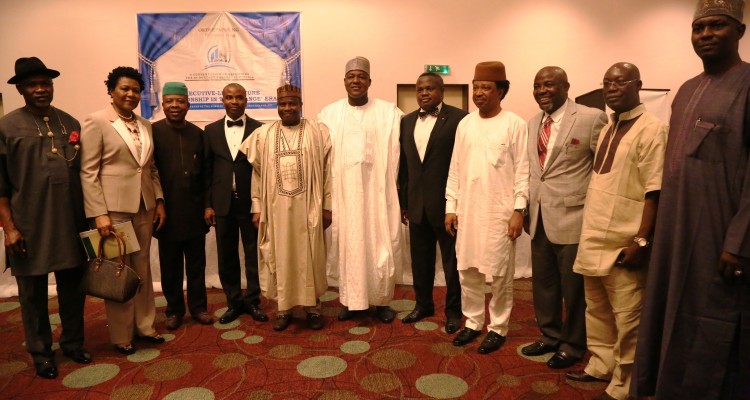Subjecting the budget process in the National Assembly to public hearings
to provide for an inclusive multi-stakeholder involvement has been
identified as one of the key solutions to reforming the country’s public
finance and ensure equitable nationwide development.
In a similar manner, upscaling transparency and accountability through
workable budget tracking measures which involve citizens at all levels has
also been listed as a major step in making the annual budget work in the
public interest.
These recommendations were part of a 12-point communique raised from the
OrderPaper.ng Colloquium on Budgetary Reforms held on September 26, 2016
in Abuja and attended by gladiators from the National Assembly, the
Executive, Civil Society, Media, Development Partners, and other critical
stakeholders.
The communique which was endorsed by Oke Epia, Publisher of OrderPaper.ng;
Anthony Ubani, Moderator of the Technical Panel; and Chido Onumah, head of
the team of rapporteurs for the colloquium, harped on timeliness of budget
presentation and stressed that “the Executive and Legislature should adopt
a more participatory budgeting process by widely consulting with the
citizens and other stakeholders through public hearings.”
Other resolutions reached at the meeting include: “That a formal forum
for pre-budget consultations and liaison between the Legislature and the
Executive should be created in order to reduce the instances of
disagreements and bickering between the two arms upon presentation of the
Appropriation bill, passage and subsequent implementation;
“That the Medium Term Expenditure Framework (MTEF) should be adopted as a
benchmark for determining what projects to be included in the budget which
should be equitably spread across the country;
“That provisions of the Fiscal Responsibility Act should be strictly
adhered to in the preparation and implementation of the budget whilst a
holistic look at the Act should be considered to take care of observed
deficiencies;
“That there should be effective tracking of projects and evaluation of
budget expenditures to ensure transparency and accountability whilst the
role of anti-corruption agencies in the budgetary process clearly defined
and enhanced;” and
“Multi-stakeholder consultations including the private sector, development
partners and the media should be undertaken for the budgetary process;”
and that “the media and civil society should improve their watchdog roles
in monitoring the budgetary process.”
The stakeholders at the colloquium which was chaired by Sokoto State
Governor, Aminu Tambuwal and had presentations from Speaker, House of
Representatives, Yakubu Dogara, and representative of the Minister of
Budget and National Planning, Udoma Udo Udoma, also resolved on the
following recommendations: “reform of the procedures of budgeting in the
National Assembly to ensure better accountability, transparency and
openness;
“Making a budget law to cover the processes and procedures of the
budgetary exercise with strengthening legislative oversight being a key
focus;
“That the National Assembly Budget and Research Office (NABRO) should be
established without further delay; and “continual engagement of relevant
stakeholders and to report on gains made with respect to the
implementation of resolutions.”
The colloquium which also had Deputy President of the Senate, Ike
Ekweremadu; Eze Onyekpere, fiscal governance expert and Lead Director at
Centre for Social Justice (CENSOJ); and Sen. Ita Enang, Senior Special
Assistant on National Assembly Matters (Senate) to the President in
participation also commended OrderPaper.ng for “convening the conversation
at such auspicious time in the country’s history and urged all
stakeholders to continue to support the initiative.”
Members of the technical panel at the colloquium which had “Budget as a
tool for Accelerated Economic Development in Nigeria” as theme were Sen.
John Enoh, Chairman, Senate Committee on Finance; Sen. Shehu Sani,
Chairman, Senate Committee on Domestic & Foreign Debts. And Hon. Kingsley
Chinda, Chairman, House of Representatives Committee on Public Accounts.
Others were Hon. Lawal Garba, Chairman, House of Representatives Committee
on Constituency Outreach; Sen. Chris Anyanwu, member of the 6th and 7th
Senate; Dapo Olorunyomi, Publisher, Premium Times; Victor Muruako, Acting
Chairman Fiscal Responsibility Commission (FRC); and Imoni Amarere,
Managing Director, News Services, Daar Communications.
The communique which had earlier been read out and adopted by a unanimous
voice vote by all participants at the colloquium was the highpoint of the
event billed to be an annual exercise, according to its organizers.



